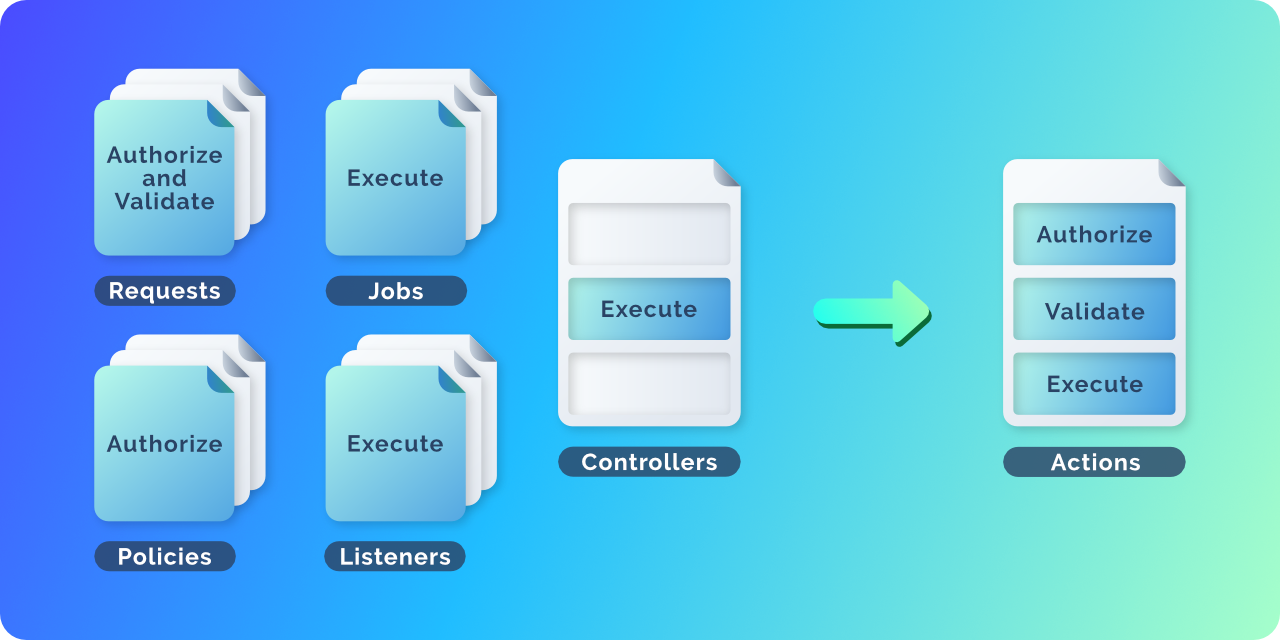Laravel components that take care of one specific task.
This package introduces a new way of organising the logic of your Laravel applications by focusing on the actions your application provide.
Similarly to how VueJS components regroup HTML, JavaScript and CSS together, Laravel Actions regroup the authorisation, validation and execution of a task in one class that can be used as an invokable controller, as a plain object, as a dispatchable job, as an event listener and as an artisan command.
composer require lorisleiva/laravel-actions📚 Read the full documentation at laravelactions.com
Create your first action using php artisan make:action PublishANewArticle and fill the authorisation logic, the validation rules and the handle method. Note that the authorize and rules methods are optional and default to true and [] respectively.
// app/Actions/PublishANewArticle.php
class PublishANewArticle extends Action
{
public function authorize()
{
return $this->user()->hasRole('author');
}
public function rules()
{
return [
'title' => ['required'],
'body' => ['required', 'min:10'],
];
}
public function handle()
{
return Article::create($this->validated());
}
}You can now start using that action in multiple ways:
$action = new PublishANewArticle([
'title' => 'My blog post',
'body' => 'Lorem ipsum.',
]);
$article = $action->run();PublishANewArticle::dispatch([
'title' => 'My blog post',
'body' => 'Lorem ipsum.',
]);class ProductCreated
{
public $title;
public $body;
public function __construct($title, $body)
{
$this->title = $title;
$this->body = $body;
}
}
Event::listen(ProductCreated::class, PublishANewArticle::class);
event(new ProductCreated('My new SaaS application', 'Lorem Ipsum.'));// routes/web.php
Route::post('articles', '\App\Actions\PublishANewArticle');If you need to specify an explicit HTTP response for when an action is used as a controller, you can define the response method which provides the result of the handle method as the first argument.
class PublishANewArticle extends Action
{
// ...
public function response($article)
{
return redirect()->route('article.show', $article);
}
}class PublishANewArticle extends Action
{
protected static $commandSignature = 'make:article {title} {body}';
protected static $commandDescription = 'Publishes a new article';
// ...
}Full documentation available at laravelactions.com
